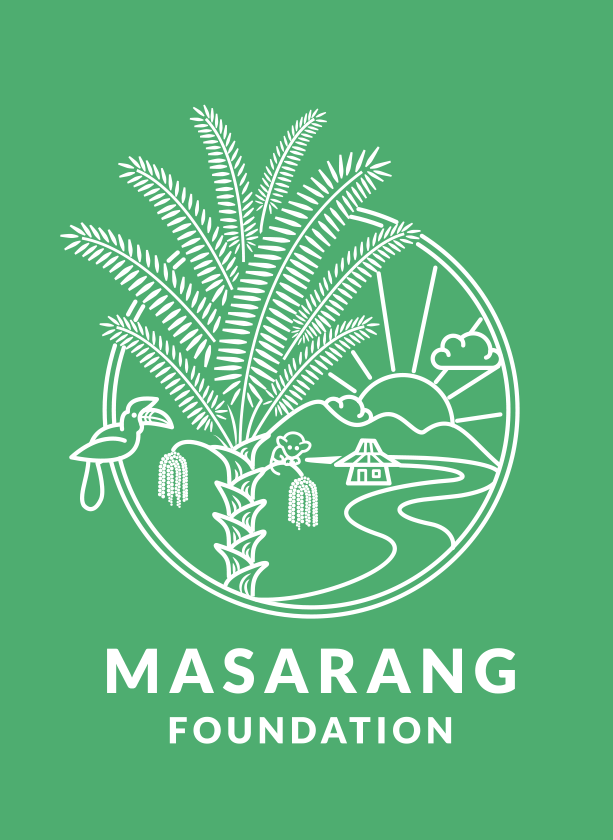At the 1st of May 2015, the Masarang Foundation in cooperation with the Kobus Foundation organized an event in the Kobus Longhouse in Sintang.
The purpose of the event was to motivate the Dayak farmers and inform them about simple techniques they can use to increase their production and income.

Dayak farmers
The rubber prices have drastically decreased over the last years and this puts all the rubber farmers in a challenging situation, sometimes leaving them no other choice then to sell their land to palm oil companies. Therefore Masarang and Kobus hoped to motivate the farmers and explain how they can earn a higher income from a mixed forest with sugar palms and many other kinds of valuable plants and crops, such as tengkawang trees, fruit trees, coffee, cassava, cacao, and many others, instead of depending on a single crop like rubber.

Father Jacques Maessen, founder of the Kobus Foundation
The founder of the Kobus Foundation, father Jacques Maessen, opened the event and welcomed the 82 attendees. Amongst the attendees were village heads, cultural leaders and representatives of farmer groups from 24 villages, divided over eight districts in the region of Sintang, as well as advisors and employees of the local microfinance bank Credit Union and employees from the Sintang Orangutan Center.
The attendees were explained how they can improve the quality of their soil by making compost and biochar by brother Piet, head of the kobus foundation and an ex Dutch missionary who has a small farm where he amongst others produces compost and biochar. The soil quality in the West Kalimantan province is poor and therefore it is difficult to cultivate. Farmers usually need to use a lot of chemical fertilizers to grow their crops such as rubber trees, and for planting rice the Dayaks usually clear an area and burn the leftover biomass in order to make the soil more fertile through the ashes (the so-called ‘ladang’ technique or shifting cultivation). Brother Piet explained how compost and biochar can help to improve the soil step by step with practical examples and how the production process works.
The next speaker was the project manager for the Masarang sugar palm program in the Sintang region, Pak Riyanto. He explained more about the sugar palm program, how to take care of sugar palm seedlings, how and where to plant the sugar palms in the best way and about the sugar juice tapping process.

Brother Piet explaining about how to improve the soil quality
Then a video was shown that explained about the potential of the sugar palm for a country like Indonesia; how it can help improve the soil quality and water absorption ability, mitigate the risks of and floods, droughts and land slides with their long roots, and provide a sustainable extra income for the farmers.

Pak Riyanto explaining about the sugar palm program
The event was closed with a talk from the advisor of Masarang in Sintang, Dirk-Jan Oudshoorn, who explained about how to make a simple biochar oven from an old oil drum and how to make efficient stoves for cooking palm sugar.
He also explained about the tengkawang factory, as an example of a small factory in a rural location that provides jobs, produces useful products for the community such as compost, biochar and food and increases the income of the people in the surroundings by buying their products like tengkawang nuts and coconuts now and many other products in the near future.
Masarang made a small booklet summarizing all the information shared in the meeting that will be distributed over the villages from the people that attended the meeting as well as other villages in their surroundings and will regularly visit the villages to support the farmers to implement thes
